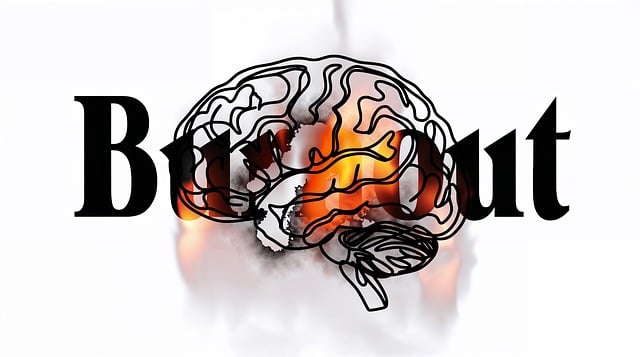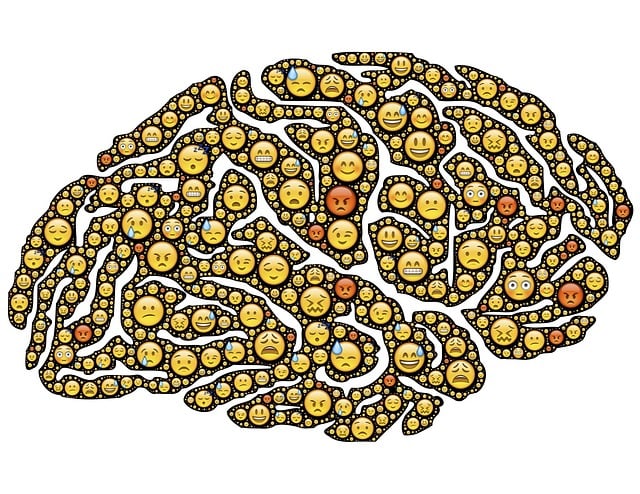Lone Tree Veterans Therapy leverages advanced data analysis techniques, including regression analysis, data mining, and machine learning, to gain a holistic understanding of patients' mental health. By integrating stress reduction, cultural sensitivity, and confidence-boosting techniques, they interpret complex datasets to personalize treatment plans tailored to diverse needs. This approach, supported by tools like digital platforms and apps, enhances emotional intelligence, improves treatment efficacy, and facilitates proactive mental health management. Lone Tree Veterans Therapy strikes a balance between technological advancement and patient privacy protection to achieve enhanced mental health outcomes.
Mental health data analysis is a growing field, crucial for understanding and improving patient outcomes. This comprehensive guide explores various aspects of mental health data, from collection through ethical considerations. We delve into effective analysis techniques, focusing on uncovering patterns and trends using tools like those available at Lone Tree Veterans Therapy. Additionally, we discuss the role of technology in managing and interpreting mental health data while emphasizing the importance of privacy and ethical standards.
- Understanding Mental Health Data: Collection and Sources
- Data Analysis Techniques for Mental Health Research
- Interpreting Findings: Uncovering Patterns and Trends
- The Role of Technology in Mental Health Data Management
- Ethical Considerations and Privacy in Mental Health Analytics
Understanding Mental Health Data: Collection and Sources

Understanding Mental Health Data is a pivotal step in effective therapy and treatment planning, especially for specialized practices like Lone Tree Veterans Therapy. Data collection in mental healthcare encompasses various sources, including medical records, patient surveys, clinical assessments, and even social media interactions. These multifaceted approaches ensure a comprehensive view of an individual’s psychological well-being. For instance, structured interviews and standardized tests provide quantitative data on symptoms, while qualitative methods like open-ended questions or narrative writing offer insights into patients’ experiences, thoughts, and feelings.
Integrating Stress Reduction Methods, Cultural Sensitivity in Mental Healthcare Practice, and Confidence Boosting techniques can further enrich the interpretation of these data points. By considering cultural backgrounds, therapeutic approaches may be tailored to meet diverse needs. Additionally, analyzing trends and patterns within the collected data enables mental health professionals to identify common challenges, assess treatment efficacy, and make informed decisions, ultimately enhancing patient outcomes.
Data Analysis Techniques for Mental Health Research

In mental health research, data analysis techniques play a pivotal role in understanding and treating various psychological conditions. Researchers at Lone Tree Veterans Therapy employ advanced statistical methods to interpret complex datasets, enabling them to draw meaningful insights from patient records. Techniques such as regression analysis help identify correlations between treatment outcomes and factors like age, gender, or the severity of initial symptoms. This allows for personalized treatment plans tailored to individual needs.
Furthermore, data mining and machine learning algorithms offer powerful tools for uncovering hidden patterns in large-scale mental health datasets. By analyzing patient demographics, treatment modalities, and therapeutic outcomes, researchers can design more effective Mental Health Education Programs and implement evidence-based practices like Social Skills Training and Conflict Resolution Techniques. These approaches not only enhance the quality of care but also contribute to the development of innovative interventions for better patient outcomes.
Interpreting Findings: Uncovering Patterns and Trends

When analyzing mental health data from sources like surveys or therapy sessions at Lone Tree Veterans Therapy, the true value lies in interpreting the findings to uncover patterns and trends. By meticulously examining responses and identifying commonalities, professionals can gain valuable insights into the emotional healing processes that resonate with individuals seeking support. This involves not just identifying isolated issues but recognizing recurring themes and connections between different aspects of mental wellness.
For example, a thorough analysis may reveal correlations between specific self-care routine development practices and improved mental health outcomes. These discoveries can inform the creation of targeted interventions and personalized strategies for fostering resilience and coping mechanisms. Moreover, insights from such data can inspire the production of a Mental Wellness Podcast Series, providing accessible information on various topics related to emotional well-being, ultimately contributing to broader community support and understanding.
The Role of Technology in Mental Health Data Management

The integration of technology into mental health care has revolutionized data management and interpretation, offering a more efficient and accessible approach to understanding and treating psychological well-being. Tools like digital platforms and mobile applications have become invaluable resources for both professionals and individuals seeking support. For instance, Lone Tree Veterans Therapy leverages advanced software to collect and analyze patient data, ensuring personalized treatment plans. These systems enable the tracking of progress, identifying trends, and providing real-time insights into various aspects of mental health.
Emotional Intelligence, a key aspect often enhanced through technology, plays a crucial role in effective data interpretation. With features like sentiment analysis and user feedback mechanisms, platforms can gauge emotional states and offer tailored guidance, such as recommended Stress Management Workshops or Crisis Intervention Guidance. This not only improves patient outcomes but also facilitates proactive mental health management, ultimately contributing to a more holistic and successful therapeutic journey.
Ethical Considerations and Privacy in Mental Health Analytics

The ethical landscape of mental health data analysis is complex, especially as technology advances and data becomes increasingly digitized. With organizations like Lone Tree Veterans Therapy leading the way in mental healthcare innovation, it’s crucial to balance the potential benefits of analytics with stringent privacy considerations. The sensitive nature of personal mental health information demands robust safeguards to protect individuals’ privacy and confidentiality.
Analyzing this data requires a nuanced approach that accounts for factors such as emotional intelligence, cultural sensitivity in mental healthcare practice, and the ongoing mental illness stigma reduction efforts. Ensuring ethical practices involves obtaining informed consent, anonymizing data where possible, and implementing strict access controls. These measures are essential to foster trust between patients and healthcare providers while harnessing the power of data analytics to improve mental health outcomes.
Mental health data analysis is a complex yet crucial process, as evidenced by the diverse techniques employed by researchers and professionals. From understanding various data sources to interpreting findings, each step plays a vital role in uncovering meaningful patterns. As technology advances, tools like those offered by Lone Tree Veterans Therapy can enhance data management, ensuring privacy and ethical practices. By carefully navigating these aspects, we can gain profound insights into mental health trends, ultimately improving support systems and services for those in need.














